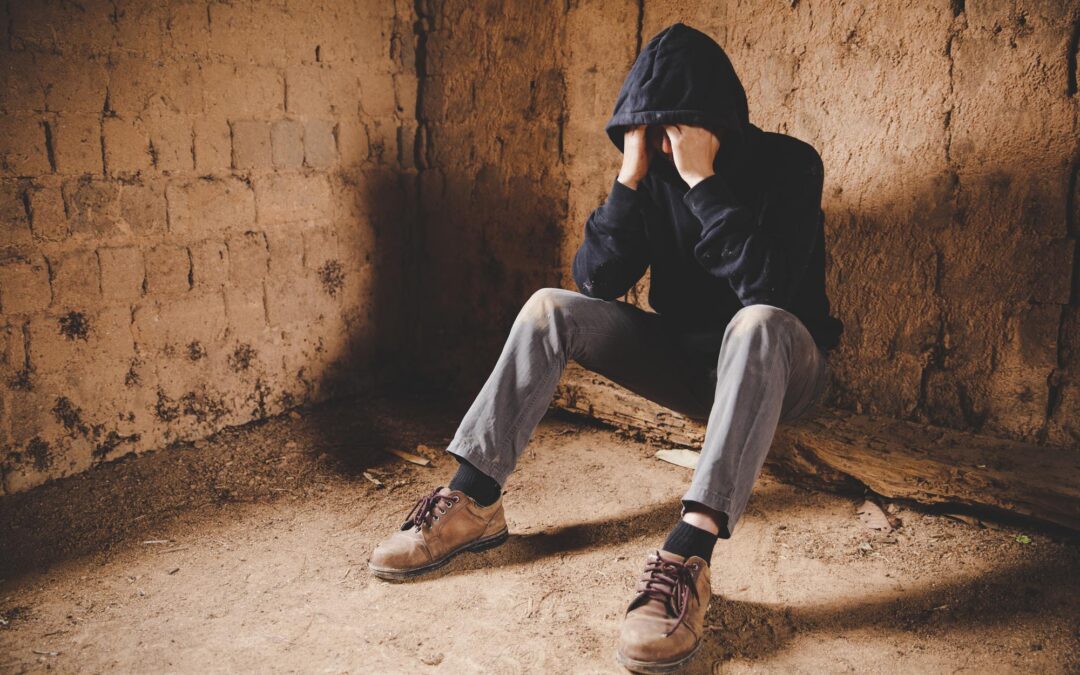5 Ways to Combat Winter Blues and Stay on Track with Recovery
Introduction
During the winter months, many people experience a dip in mood known as the winter blues. This feeling is more than just a case of the post-holiday slump; it’s closely linked to Seasonal Affective Disorder (SAD). As daylight decreases, individuals might find themselves battling fatigue, irritability, and even depression. Addressing mental health during these colder months becomes crucial.
For those recovering from addiction, these challenges can be especially tough. The combination of winter blues and addiction recovery presents unique obstacles. Reduced sunlight affects serotonin levels—our body’s natural mood regulators—making it harder for those recovering from addiction to maintain emotional stability. This can lead to increased cravings and difficulty staying on track with sobriety goals.
It’s important to seek help during these times. Dual-diagnosis treatment centers in Massachusetts can provide essential support by addressing both mental health and substance use disorders at the same time. Additionally, specialized addiction therapy can equip individuals with the necessary tools to navigate their recovery journey more effectively.
In this article, we will discuss strategies that can help improve mental well-being and support recovery during the winter season.
Understanding Winter Blues and Its Impact on Recovery
Seasonal depression, often referred to as the winter blues, can cast a long shadow over the colder months. Symptoms such as fatigue, irritability, social withdrawal, and a general loss of interest in activities are common signs of Seasonal Affective Disorder (SAD). These symptoms can intensify cravings and hinder progress in recovery.
The Role of Sunlight
The role of sunlight is crucial during this period. Less exposure affects serotonin levels—a neurotransmitter that influences mood—and disrupts circadian rhythms, leading to increased melatonin production. This hormonal imbalance can result in sleep disturbances and heightened feelings of depression.
Challenges for Individuals in Recovery
For individuals in recovery from addiction, the challenges become even more pronounced. The combination of reduced daylight and harsh weather conditions can lead to increased isolation. This not only exacerbates seasonal depression but also poses a significant risk for relapse. Social withdrawal removes the essential support network needed to maintain sobriety.
Navigating Winter Challenges
Understanding the impact of winter on recovery is vital for creating strategies to navigate these challenges. Addressing both the physiological effects of reduced sunlight and the psychological hurdles posed by isolation can aid in sustaining recovery efforts through the darkest months. It’s important to seek help during these times; addiction treatment programs can provide necessary support for those struggling with substance abuse or co-occurring disorders.
1. Light Therapy: A Bright Solution
Light therapy is a highly effective way to combat the winter blues, especially for those experiencing Seasonal Affective Disorder (SAD). It involves exposure to a bright light that mimics natural sunlight, helping to regulate the body’s internal clock and boost serotonin levels.
How It Works
Light therapy boxes emit a bright light that is similar to outdoor light but without the harmful UV rays. This exposure can alleviate symptoms of SAD by influencing brain chemicals linked to mood and sleep.
Evidence of Effectiveness
Numerous studies have shown that light therapy can significantly reduce symptoms of SAD. Participants often report feeling less depressed and more energized after regular sessions.
Incorporating Light Therapy into Your Routine
Best results are often achieved by using a light box for about 20–30 minutes each morning. Consistency is key, so try setting up your light box in a spot where you can use it while doing other activities like reading or eating breakfast.
Whenever possible, complement light therapy with natural sunlight. Even brief walks during daylight hours can enhance mood and well-being.
By integrating these practices into your daily life, you can harness the benefits of light therapy to help manage the winter blues effectively.
2. Staying Active in Winter: The Role of Physical Activity
Embracing physical activity during the winter months can be transformative for both mental and physical well-being, especially when recovery is a top priority. Regular exercise has been shown to significantly enhance mood and overall health, serving as a natural antidote to the winter blues. When you’re active, your body releases endorphins—those feel-good hormones that lift spirits and bring a sense of achievement.
Finding ways to stay active in the colder months might seem challenging, but there are plenty of enjoyable activities to try:
- Walking: Bundle up and take a brisk walk around your neighborhood or local park. The fresh air and movement can work wonders for your mood.
- Sledding: Relive childhood memories and hit the slopes for some exhilarating sledding—it’s not just fun but also a great workout.
- Home Workouts: If venturing outside isn’t appealing, explore home-based exercises like yoga or online fitness classes that keep you moving indoors.
Physical activity is not only crucial for combating winter blues; it’s also a key component in supporting sobriety. Exercise fosters discipline builds self-esteem, and helps manage stress—all vital elements in the journey of recovery. By weaving physical activity into daily life, individuals can maintain their focus on recovery goals while enjoying the myriad benefits that come with staying active during winter.
3. Building a Support Network: Connection is Key
Winter months can often lead to feelings of isolation, which can be particularly challenging for those in recovery. A strong support network is crucial during this time, as social connections play a significant role in maintaining mental health and supporting recovery efforts.
Understanding the Impact of Isolation
The colder weather and shorter days can make it tempting to retreat indoors and disconnect from others. This isolation can worsen feelings of loneliness, depression, and anxiety, potentially jeopardizing the progress individuals have made in their recovery journey.
Strategies for Staying Connected
Here are some strategies to help you stay connected during the winter months:
- Engage in sober gatherings to build community and share experiences with others who understand the challenges of recovery.
- Take advantage of virtual meetings, which provide flexibility and accessibility even when physical meetings are not possible.
- Plan regular check-ins with friends or family members to maintain a sense of belonging and accountability.
The Benefits of Group Therapy
Participating in group therapy sessions offers unique advantages. These sessions create a safe space where individuals can express their emotions, gain insights from peers, and develop coping strategies together. By sharing struggles and successes within a group setting, individuals reinforce their commitment to sobriety while receiving encouragement from others on similar paths.
Building these connections not only helps combat winter blues but also strengthens one’s resilience against potential relapse triggers.
4. Creating a Structured Schedule for Success
Finding stability during the unpredictable winter months can be challenging, especially when battling the winter blues. Establishing a structured schedule becomes crucial in maintaining focus and motivation, particularly for those in recovery.
Why Routine Matters
A daily routine packed with recovery-focused activities can serve as an anchor. Incorporating regular habits helps combat feelings of uncertainty and chaos, which often accompany Seasonal Affective Disorder (SAD). Sticking to a set schedule ensures that the important aspects of recovery aren’t overlooked, providing a sense of purpose and accomplishment each day.
Planning Your Day
Here are some practical tips for managing winter blues through effective planning:
- Exercise: Dedicate specific times for physical activity. Whether it’s a morning yoga session or an evening walk, exercise is essential for boosting mood and energy.
- Social Time: Schedule regular interactions with friends or support groups. Virtual check-ins or planned outings can help maintain those vital connections.
- Self-Care Practices: Allocate time each day for activities that nurture your well-being, like reading, meditating, or taking a warm bath.
Reducing Overwhelm
A structured schedule also plays a significant role in minimizing feelings of overwhelm. Having a clear plan reduces anxiety about how to fill each day and keeps you on track with personal goals. This proactive approach is one of the most effective coping strategies for SAD, helping you stay grounded and focused throughout the colder seasons.
5. Engaging in Outdoor Activities to Boost Mood
Spending time outdoors during winter can be a game-changer for fighting depression through enjoyable activities. The cool air and natural beauty provide a refreshing setting for both exercise and socializing, which are important factors in dealing with the winter blues.
Explore Outdoor Fun:
- Ice Skating: Glide gracefully across local rinks or frozen ponds. It’s not just about balance; it’s about connecting with friends and creating joyful memories.
- Sledding: Feel like a kid again racing down snowy hills. It’s exhilarating and perfect for a laugh.
- Winter Hiking: Trails take on a magical quality under a blanket of snow. Bundle up and enjoy the serenity of nature.
Benefits of Fresh Air:
- Mental Clarity: Breathing in crisp, fresh air rejuvenates the mind and lifts spirits.
- Nature’s Healing Touch: Exposure to natural surroundings has been shown to reduce stress and improve overall well-being.
Try Something New:
Consider picking up snowshoeing or cross-country skiing. New hobbies not only challenge your body but also stimulate your mind, keeping you engaged.
Recovery and the Winter Blues can coexist more harmoniously when outdoor activities become a regular part of your routine. Embrace the season as an opportunity to discover new passions while nurturing mental health.
Conclusion
Winter months can present unique challenges for those on the path to recovery. Addressing mental health and sobriety during these colder seasons is crucial to staying on track.
Combatting Depression During Winter Months: Engaging in strategies that focus on light exposure, physical activity, and social connections can significantly alleviate symptoms of depression.
Maintaining Sobriety in Winter: Establishing a structured routine and staying proactive about mental health helps fortify one’s commitment to sobriety.
Prioritizing both mental well-being and recovery efforts ensures you remain resilient against the winter blues. It’s about creating a balance between self-care and social engagement—empowering you to face winter with confidence and strength.
Reach Out For Support
Are you feeling down this winter? Don’t go through these cold months by yourself. Advanced Addiction Center is here to support you in staying dedicated to your sobriety and mental health.
- Get personalized support by reaching out to us at Advanced Addiction Center, so that the difficulties of winter don’t disrupt your recovery journey.
- Discover various resources created to keep you inspired and active throughout the season.
Contact us now and take proactive measures towards a brighter and healthier future this winter. Your road to recovery can remain steady and strong, even when it’s cold outside.








